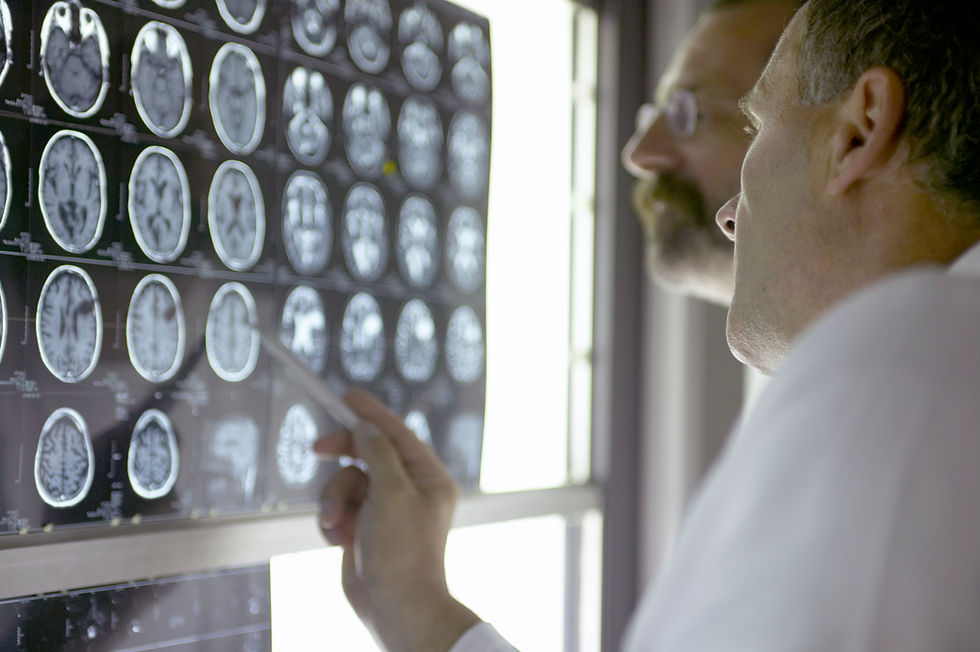就讀音樂治療前,你需要的基本技能 Setting the Stage: Key Skills You Need Before Diving into Music Therapy
- music therapy taptalk

- Mar 18, 2024
- 4 min read
Updated: Apr 1, 2024
👇Scroll down to read in english
文/Zoe
前兩篇整理了 我想當音樂治療師合適嗎? 以及 音樂治療面試小錦囊 都獲得了許多迴響,有興趣的同學們,歡迎再到敲敲的網站上閱讀。 而最近收到許多同學的詢問:確定了對音療的志向,但不確定是否具備足夠的基本能力去申請相關的學校。如果你也有相同的疑慮,在這裡提供一些方向,讓你了解自己還需要加強哪些方面。
閱讀:我想當音樂治療師合適嗎? 以及 音樂治療面試小錦囊

音樂能力 Music Proficiency
必備樂器:吉他 和 鋼琴
基本和弦進行
快速移調
和弦伴奏形式變化
自彈自唱
單/複拍子轉換
背譜自彈自唱
改寫歌詞
曲風轉換
自由即興彈唱
其他
以上提到的音樂能力只是基礎,就像是準備的起點一樣。但單單有這些能力是不夠的,因為音樂能力是需要不斷地累積的,所以千萬別等到面試前才開始練習! 不同的學校對音樂能力的要求都不太一樣。但總的來說,在面試或入學前,累積越多的音樂能力就能減輕你的準備壓力,因為對許多非音樂背景的同學來說,音樂能力通常是入學後的第一個挑戰!
非音樂能力 Non-music proficiency
學科相關理論和課程: 深入了解各種學科理論和知識,可以幫助你更好地理解人們的行為、生理和心理狀態。包括但不限於發展心理學、變態心理學、生理學、腦神經學、特殊教育導論等領域。
音樂治療書籍: 通過閱讀音療書籍,你可以深入了解音樂治療的基本概念、歷史、理論和實踐。書單可參考此連結:https://www.musictherapy.com.tw/books
參與由合格音樂治療師主講的活動: 參加由合格音樂治療師主講的工作坊、培訓課程、講座和研討會,可以讓你了解音樂治療的實際應用和技巧。同時,你也能夠與其他專業人士交流、建立聯繫,瞭解不同的工作型態。
語言能力累積: 由於音樂治療領域的主要教科書和文獻通常都是英文,而許多進修課程也以英文進行。因此,具備一定程度的英文能力將有助於你在學習過程中更輕鬆地接觸各種資源。
社交與臨床互動經驗:音樂治療一個與人互動密切的領域,你將會接觸到各種年齡層的人,包括個案/病患、家屬、醫療和社福相關人員,以及社會大眾。因此,擁有良好的溝通和表達能力是成為一名音樂治療師的必備技能! 除了理論知識,實際經驗也是面試前的關鍵。透過實習、工作或志願服務,你可以積累實際的互動經驗,從而提高應對各種情況的能力。
希望這篇可以簡單給大家一些準備方向!
音樂治療為一門終生學習的專業,決定成為音樂治療師後,讓我們一起再這條路上努力吧~
The previous articles, "Am I Ready to be a Music Therapist?" and "Unlocking the Keynotes: Common Interview Queries for MT Programs," have received a lot of feedback. For those interested students, feel free to visit our website for more information. Recently, we've received many inquiries from students who have confirmed their interest in music therapy but are unsure if they possess enough basic skills to apply to related programs. If you have similar doubts, here are some directions to help you understand which areas you need to strengthen.
Music Proficiency
Required Musical Instruments: Guitar and Piano
Basic chord progressions
Quick key modulations
Variations in chord accompaniment patterns
Singing while playing an instrument
Transition between simple and compound meters
Memorizing and playing by ear
Rewriting lyrics
Switching in different musical styles
Freestyle improvisation
etc.
The music skills mentioned above are just the basics, serving as a starting point. However, having these skills alone is not enough, as musical skills require continuous accumulation. So, don't wait until right before the interview to start practicing! Different schools have different requirements for fundamental musical skills upon audition. But overall, accumulating more musical skills before interviews or admissions can alleviate your preparation pressure because, for many non-musical background students, musical skills are often the first challenge after admission!
Non-Music Proficiency
Subject-related theories and courses: A deeper understanding of various subject theories and knowledge can help you better understand people's behaviors, physiology, and psychological states. This includes but is not limited to developmental psychology, abnormal psychology, physiology, neurology, and introduction to special education.
Music therapy textbooks: Reading music therapy books can give you an in-depth understanding of the basic concepts, history, theories, and practices of music therapy. You can refer to the booklist provided in the following links. https://www.musictherapy.com.tw/books
Participating in activities led by qualified music therapists: Joining workshops, training courses, lectures, and seminars led by qualified music therapists can help you understand the practical applications and techniques of music therapy. At the same time, you can also interact with other professionals, build connections, and learn about different work styles in different settings.
Language proficiency accumulation: Since most textbooks and literature in the field of music therapy are often in English, and many advanced courses are also conducted in English, having a certain level of English proficiency will help you access various resources more easily during your learning process.
Social and clinical interaction experience: Music therapy is a field closely related to human interaction, where you will come into contact with people of all ages, including patients, family members, medical and social work personnel, and the general public. Therefore, having good communication and expression skills is essential to becoming a music therapist. Besides theoretical knowledge, practical experience is also crucial before interviews. Through internships, jobs, or voluntary services, you can accumulate practical interaction experience and thereby improve your ability to deal with various situations.
Hope this article can provide some simple prep directions for everyone.
Music therapy is a profession of lifelong learning.
After deciding to become a music therapist, let's work together on this journey!










Comments